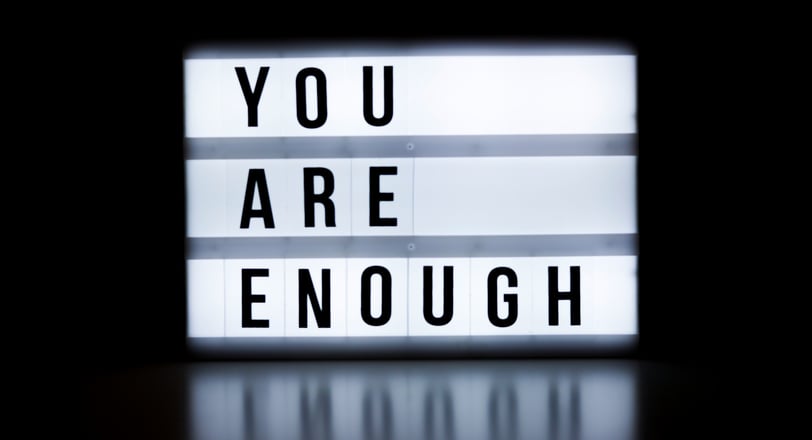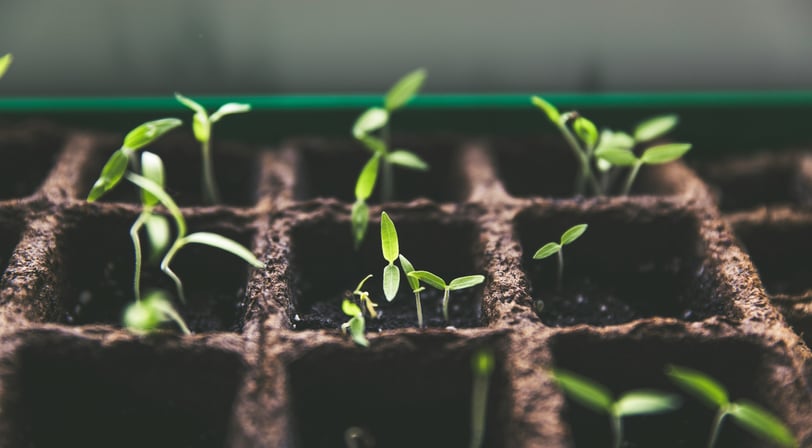Stay Tuned For Our Daily Posts!
Is the Self-Improvement Industry Making Us Anxious?
That notification just popped up on your phone: “5 Morning Habits of Billionaires.” You feel a familiar twinge — part guilt, part inadequacy, part determination. You’re already behind today, and now you’re reminded that successful people have completed their meditation, exercise, journaling, cold plunge, and gratitude practice before you’ve even finished your coffee. Welcome to the paradox of modern self-improvement: the very industry promising peace, success, and fulfillment might be amplifying our anxiety and inadequacy.
BLOG
The Brainy Croissant
4/18/20254 min read


Photo by Giu Vicente on Unsplash
The Growth of an Industry Built on Inadequacy
The self-improvement market recently surpassed $41 billion in value — a number that’s projected to reach $67 billion by 2030. This explosive growth isn’t merely reflecting our desire to better ourselves; it’s actively shaping how we view ourselves.
At its core, the industry’s business model depends on a delicate psychological balance: offering hope while simultaneously reinforcing inadequacy. After all, a perfectly content person doesn’t buy self-help books or enroll in transformational masterclasses.
The Never-Ending Journey to Nowhere


Photo by Felicia Buitenwerf on Unsplash
“You are enough” states the Instagram post from a life coach selling a $997 course on becoming your best self. The contradiction is rarely acknowledged: If you were truly “enough,” why would you need the course?
This paradox creates what psychologists call the “self-improvement treadmill” — a perpetual state of striving where:
Each accomplishment immediately reveals new inadequacies
The goalpost of “enough” continuously recedes into the distance
The process of improvement becomes more important than the actual results
One study from the University of California found that participants exposed to self-improvement content reported higher levels of self-criticism and lower self-compassion scores than control groups. The very content designed to lift us up may be weighing us down.
The Metrics Obsession: Quantifying the Unquantifiable
“What gets measured gets managed,” goes the business adage that’s infiltrated our personal development. Now we track:
Steps taken
Hours slept
Minutes meditated
Words written
Pages read
Calories consumed
Gratitudes expressed
This quantification of existence transforms life into a perpetual optimization project. When your morning meditation becomes another checkbox rather than a genuine practice, its essence is lost — replaced by anxiety over maintaining your streak.
The Expert Paradox


Today’s self-improvement landscape is dominated by charismatic figures who’ve mastered a compelling narrative: “I was once lost like you, but then I discovered this system, and now I’m successful enough to teach it.”
This creates what philosopher Alain de Botton calls “a cascade of expertise claims” — where being perceived as successful becomes more important than the quality of advice offered.
The result? A marketplace flooded with contradictory guidance:
“Wake up at 5 AM!” vs. “Honor your chronotype!”
“Hustle harder!” vs. “Embrace radical rest!”
“Plan everything meticulously!” vs. “Live spontaneously in the moment!”
Each guru speaks with absolute certainty, leaving followers perpetually questioning if they’re following the right advice.
The Real Cost of Constant Improvement
The psychological toll of perpetual self-improvement extends beyond general anxiety. Research from the British Journal of Psychology identified several concerning patterns among dedicated self-help consumers:
Diminished self-efficacy: Paradoxically, exposure to too many improvement methods can reduce your confidence in your ability to change
Decision fatigue: The overwhelming volume of contradictory advice creates decision paralysis
Identity instability: Constantly trying new approaches prevents the formation of stable habits and identity
Comparative suffering: The focus on optimization creates endless opportunities for unfavorable social comparison
When self-improvement becomes your primary hobby, you essentially sign up for a lifetime subscription to subtle self-rejection.
Finding the Balance: Improvement Without the Anxiety


Photo by Anshul on Unsplash
I’m not suggesting we abandon growth. Personal development remains one of humanity’s noblest pursuits. However, we need a more nuanced approach that preserves the benefits while minimizing the psychological damage.
Consider these alternative principles:
1. Progress, Not Perfection
Replace the pursuit of transformation with appreciation for incremental change. Research in behavior design shows that tiny improvements — just 1% better — compound dramatically over time without triggering the anxiety of major overhauls.
2. Values Over Metrics
Ask yourself: “What kind of person do I want to be?” rather than “What goals should I accomplish?” When improvement aligns with your core values rather than external benchmarks, it becomes less anxiety-inducing.
3. Seasons, Not Streaks
Human development naturally flows through seasons of intense growth and periods of integration. Permitting yourself seasons of maintenance rather than constant upward trajectory mirrors natural cycles and prevents burnout.
4. Curiosity Over Criticism
Approach self-improvement with the mindset of an explorer rather than a drill sergeant. Research shows that curiosity-driven improvement produces more sustainable results than criticism-driven change.
A Personal Confession
I write this as someone who has fallen into every trap described above. My bookshelves overflow with self-improvement titles. My phone contains multiple habit-tracking apps. I’ve attended the seminars and joined the masterminds.
And yes, I’ve experienced the growth these resources promised — but often at the cost of present-moment contentment. The anxiety of potential improvement frequently overshadowed the joy of current reality.
The turning point came when I realized that self-improvement works best as a tool, not an identity. Tools are picked up when needed and set down when their purpose is fulfilled. They serve us; we don’t serve them.
The Improvement Paradox


Photo by Markus Spiske on Unsplash
Perhaps the most profound improvement comes when we occasionally abandon improvement altogether — when we put down the self-help books, close the productivity apps, and simply exist without agenda or optimization.
In those moments of “being” rather than “becoming,” we often discover what all the improvement was ultimately for: the capacity to be fully present and at peace with ourselves as we are.
So ask yourself: Is your self-improvement serving you, or are you serving it? The answer might reveal whether you’re growing toward freedom or simply building a more comfortable prison.
The next time that “5 Habits of Successful People” notification appears, maybe the most radical act of self-improvement would be to ignore it, put down your phone, and enjoy your coffee — just as it is, and just as you are.
Photo by Rita Morais on Unsplash